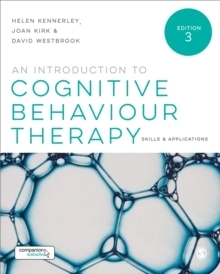

Core competencies in cognitive-behavioral therapy : becoming a highly effective and competent cognitive-behavioral therapist
- Utgiven: 2013
- ISBN: 9780415887519
- Sidor: 296 st
- Förlag: Routledge
- Format: Häftad
- Språk: Engelska
Om boken
Åtkomstkoder och digitalt tilläggsmaterial garanteras inte med begagnade böcker
Mer om Core competencies in cognitive-behavioral therapy : becoming a highly effective and competent cognitive-behavioral therapist (2013)
2013 släpptes boken Core competencies in cognitive-behavioral therapy : becoming a highly effective and competent cognitive-behavioral therapist skriven av Cory Frank. Newman. Den är skriven på engelska och består av 296 sidor. Förlaget bakom boken är Routledge.
Köp boken Core competencies in cognitive-behavioral therapy : becoming a highly effective and competent cognitive-behavioral therapist på Studentapan och spara uppåt 7% jämfört med lägsta nypris hos bokhandeln.
Referera till Core competencies in cognitive-behavioral therapy : becoming a highly effective and competent cognitive-behavioral therapist
Harvard
Oxford
APA
Vancouver



















